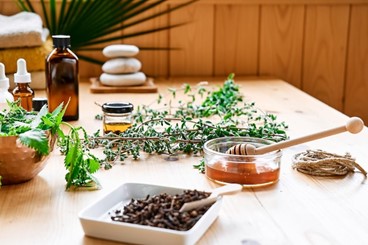A condition characterized by forming a small tunnel or cavity in the skin, usually at the top of the buttocks, near the tailbone. It often leads to discomfort, pain, and sometimes infection. Managing it involves maintaining hygiene, dietary adjustments, herbal remedies and Ayurvedic procedures.
In Ayurveda, the Pilonidal sinus is often correlated with “Nadivrana” or chronic wounds. This condition results from the aggravation of Vata and Kapha doshas, leads to the accumulation of toxins (ama) in the pilonidal region.
Symptoms
- Pain and tenderness in the lower back or buttock region.
- Swelling, redness, or inflammation around the tailbone.
- Drain of pus or blood from the sinus opening.
- Formation of small pits or holes in the skin.
Causes
Pilonidal sinus, characterized by skin tunnels near the tailbone, arises from factors like dosha imbalance, poor hygiene, tight clothing, and genetic predisposition. Friction from prolonged sitting worsens it. Managing hygiene, diet, and lifestyle changes is vital for prevention and recurrence avoidance.
Treatment
- Dietary Recommendations
Emphasize a diet that pacifies Vata and Kapha doshas, which include warm, easily digestible foods and herbal teas. Avoid cold, heavy, and fried foods, as they aggravate the doshas and slow the healing process.
- Lifestyle Modifications
Maintain proper hygiene in the affected area, keeping it clean and dry and avoid sitting for prolonged periods, Practice gentle exercises like yoga and walking to improve circulation and promote healing.
- Herbal Remedies and External Treatments
Local application of herbal pastes or oils can help reduce inflammation and promote healing. Regular soaks in warm water and herbal decoctions can also help cleanse the affected area and reduce pain.
Prevention
- Maintain hygiene
- Avoid prolonged sitting and tight clothing
- Practice regular exercise
- Follow a balanced diet
- Keep the affected area clean and dry
Ayurveda offers a holistic approach to manage the Pilonidal sinus by addressing the root cause of the condition and promoting overall health and well-being. However, for optimal results, it is important to integrate Ayurvedic treatments with conventional medical care.



